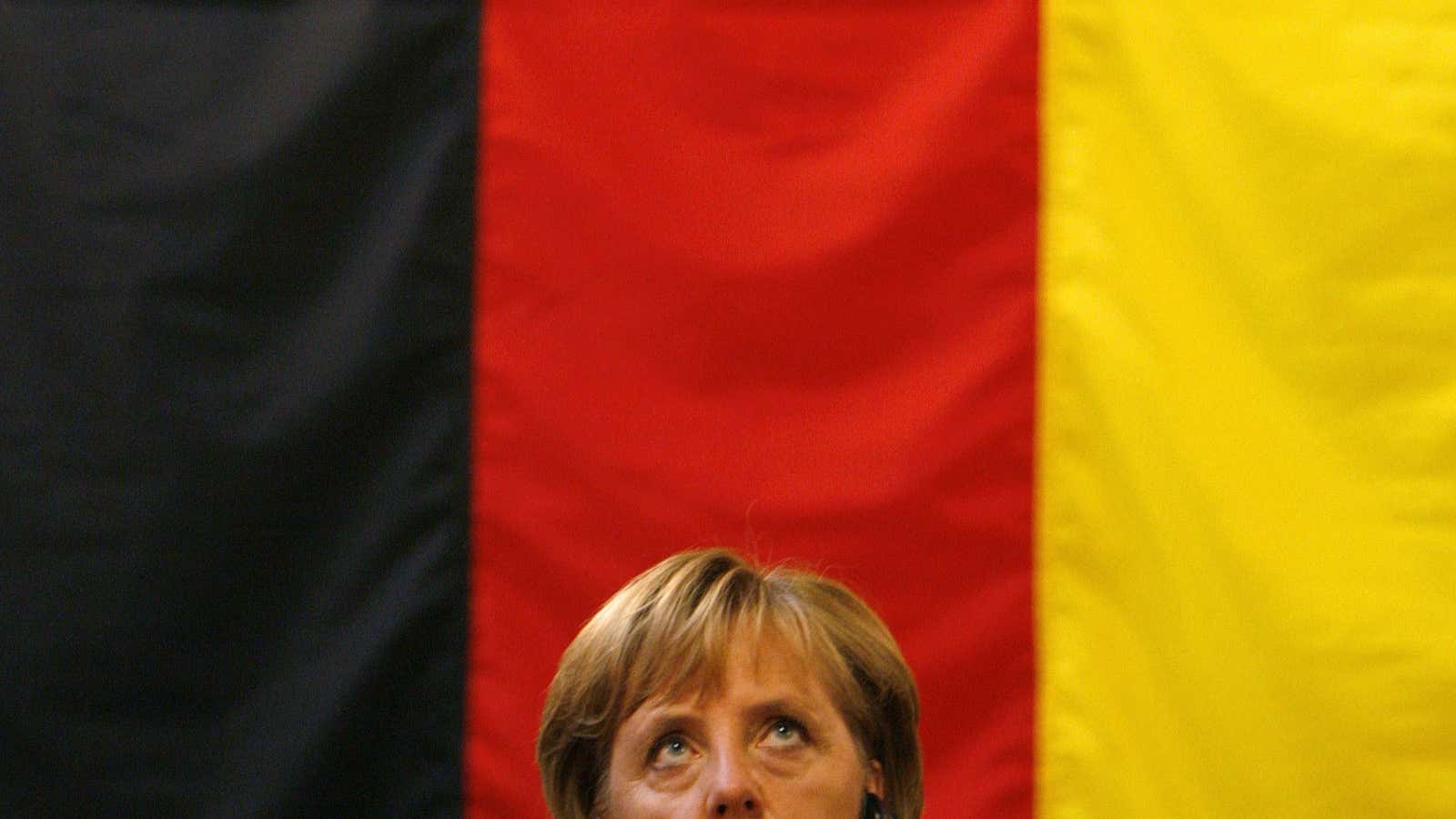Every year around this time, German television and newspapers are full of pictures of events taken a quarter of a century ago: fireworks around the Brandenburg Gate, people sitting on the Berlin Wall, East German Trabis honking and driving west.
The Day of German Unity, or “Tag der Deutschen Einheit,” is less exciting than New Year’s or Christmas. The public holiday is more a time to reflect. Politicians give speeches. Families gather around the television. Schools are closed. However, this Oct. 3 is special because it’s the 25th anniversary. And for the first time on this occasion, Germans would rather look forward than backwards. The question is no longer, “How is Germany doing?” but “Where is Germany headed?”
Germany is a changing nation, slowly becoming a global leader. The Greek euro crisis and ongoing influx of refugees have shown this clearly. What will its new role look like? And what will the next generation of Germans, who did not experience the division and reunification of Germany, make of it?
In 1996, the German legislature, or Bundestag, made the government annually report on the state of unified Germany. Ever since, the administration has filed statistics about the GDP, population growth, unemployment, and level of education in the “new” and “old” federal states. While there remain significant gaps between both what was formerly East and West, this year’s report clearly shows that the project of a German union and reconstruction of Eastern Germany (“Aufbau Ost”) is progressing swiftly.
More than 3 million people left East Germany in the aftermath of the fall. Wages and economic opportunities are still better in the West, but in the last two years, there were, for the first time, more people moving from West to East Germany. And not only to cosmopolitan Berlin. Cities like Leipzig, Erfurt, Jena, and Greifswald are growing increasingly popular. While unemployment is still 4% higher in the East, 14 years ago it was around 10%. The former East today contributes 15% of GDP. In 1991, it was 11%. Fewer and fewer Germans have a so-called “Mauer im Kopf,” or “wall inside the head.” Relationships between Ossis and Wessis (colloquial terms for East and West Germans, respectively) are nothing unusual. For the generation who did not witness the reunification, it is rather strange to talk about “new” and “old” federal states. And last but not least, both the chancellor, Angela Merkel, and president, Joachim Gauck, are from East Germany.
Of course, a Germany regaining its strength raises concerns among European neighborhoods. This summer, foreign op-eds were swift to rekindle history when the German government pushed hard on Greece to end the euro-debt crisis. A country that brought death and misery to the world had regained its power.
Yet, when Merkel recently announced to welcome the thousands of stranded refugees in Hungary and currently plans with 800,000 asylum seekers this year alone (which is 1% of Germany’s population), global leaders and the media talked more positively of the country. Germany is starting to assume its power and role as a global leader, in line with its geographic and economic size. But, in this sense, it is not only foreigners who look to recent history with furrowed brows.
If you listen to German politicians, talk of assuming power is majorly taboo. Born before or shortly after 1945, leaders keep thinking along the lines of the war experience and division of the nation. Any globally oriented political act is accompanied by deep hesitation. If ever, this might change after another 10 years or so, when Germans with no memories of the war and division come to power. How will they weigh their steps and make decisions?
Humans err, and tend to quickly forget about the past. No country is safe from the toxic and highly dangerous byproducts of nationalism, including Germany, a nation which has probably documented and publicly displayed its darkest hours like no other. However, the ascending generation is very different from the old. It is not only united, and does no longer think in Eastern or Western terms. It is also culturally very mixed. The concept of the German nation is inherently changing.
Who is German? This is not an academic debate. The idea of being a country of immigrants, like the US, feels very alien to modern Germany. But if you walk the streets of any major city, Germany clearly is one. With historic irony, the former Nazi nation has become a melting pot. Nevertheless, people stutter when referring to the native-born children whose parents came from Turkey, Vietnam, or Ghana. If they, too, are German, what are we—white, European Germans? My German-born roommate, whose parents are from Turkey, refers to us jokingly as the “Ur-Deutschen,” with the prefix “ur” signifying “original.” (Or, if you will, “primeval.”)
Slowly but surely acting more like a global power, a changing German nation is holding its 25th Reunification Day. If I have a wish for the future as a politically interested German person, it is that “we” think a little less about “our” past and “German” constraints, and a lot more about the world and global problems. It might take another 10, probably 20 years, for some of those who do exactly this to come to power. But with so many young Germans expressing open-armed sympathy for floods of refugees, it makes this writer very optimistic.
